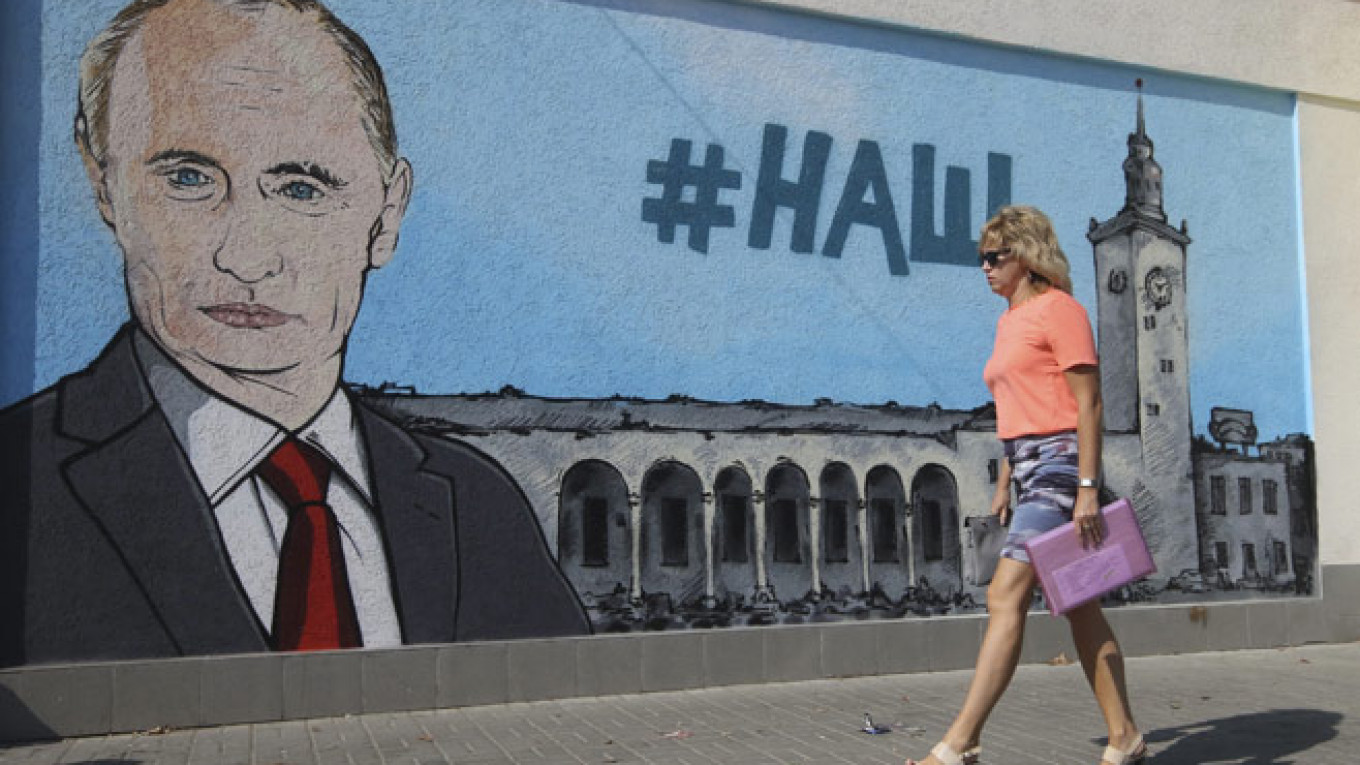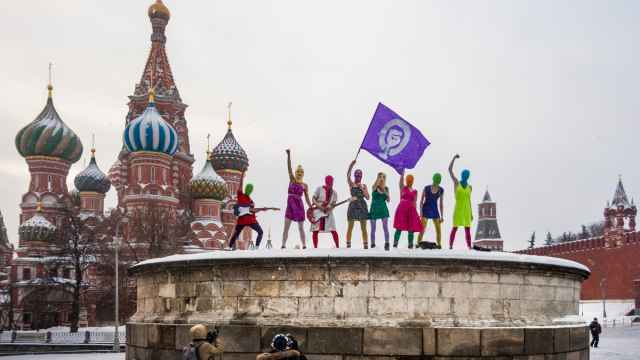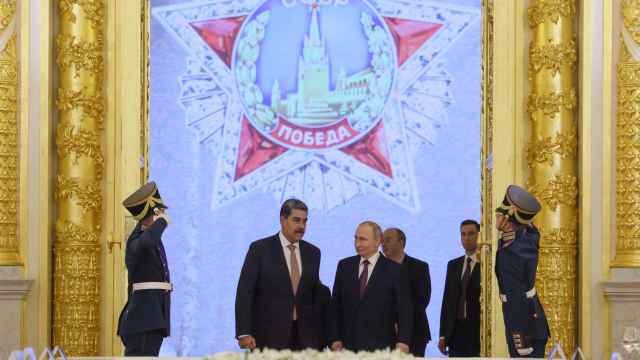To read the international press, one would think that the last two years have been good ones for President Vladimir Putin. Russia has control of Crimea and has destabilized large portions of eastern Ukraine. Plunging oil prices may have wreaked havoc on Russia's finances, but so far Putin's domestic popularity seems unaffected.
But a long stream of legal defeats could have a dramatic impact on Putin's fortunes. In 2014, for example, the European Court of Human Rights (ECHR) delivered 129 judgments against Russia, and in January, the Council of Europe deprived Russia of its voting rights for its violations of international law.
As the rulings pile up, they are starting to pose a threat to Russia's international standing, its financial health, and Putin himself.
The rulings have not been merely symbolic. In July 2014, the Permanent Court for Arbitration in The Hague ordered Russia to pay $50 billion to former shareholders of the oil company Yukos for having illegally bankrupted the firm and distributed its assets to Rosneft, a state-owned producer. At its peak in 2003, Yukos was valued at $30 billion. The judgment is the largest ever awarded by the arbitration court, and it cannot be appealed.
In a separate case, in June 2014 the ECHR ordered Russia to pay Yukos's shareholders more than $2 billion "in respect of pecuniary damage." This judgment was also the largest in that court's history. Russia, which is in the midst of a liquidity crisis, will struggle to raise such huge sums; failure to comply, however, would jeopardize future foreign investments.
The Yukos case could be a sign of things to come. In April, the European Commission issued a Statement of Objections to Russian gas giant Gazprom, charging it with violating Europe's antitrust laws by partitioning Central and Eastern European gas markets, forbidding cross-border resale, and closing its pipelines to third parties.
Gazprom faces a fine of 10 percent of its revenues, which totaled $177 billion in its last fiscal year. Already struggling with low gas prices, increased competition, and now falling production Gazprom will be hard pressed to come up with the necessary funds without sacrificing urgent infrastructure projects.
Russia is also coming under increased pressure regarding alleged criminal conduct. It recently vetoed a United Nations Security Council resolution, sought by Malaysia, Ukraine, the Netherlands, Australia, and Belgium, to establish a criminal tribunal to prosecute those responsible for the downing of Malaysia Airlines Flight MH17 in July last year over rebel-occupied territory in eastern Ukraine.
Were Russian guilt for the downing of Malaysia Airlines Flight 17 to be established, Putin's depiction of his country as a bystander in the Ukrainian conflict would be exposed as a lie. In any case, Russia's veto in the Security Council opens the door for the Netherlands — which lost the most citizens in the attack — to push for additional sanctions.
Meanwhile, in July 2014, Britain reinstated a legal inquiry into the November 2006 polonium poisoning of Alexander Litvinenko, a former Russian state security officer who had become a British citizen. Public hearings were held in London to identify "where responsibility for the death lies."
A ruling by a British court that the Russian government ordered or abetted the murder of Litvinenko would have far-reaching consequences. It would strengthen the European Parliament's call for an independent international investigation of the murder of the Russian opposition political leader Boris Nemtsov, and bolster his family's petition for an international investigation.
Finally, while Russia has established de facto control of Crimea, it is likely to find itself increasingly embroiled in legal challenges to its presence there. No credible government or international organization accepts Russia's description of the annexation as a legal democratic act by the Crimean people. The United Nations, the G7, the European Union, and the United States all characterize it as an illegal act. In May, German Chancellor Angela Merkel described it — in Putin's presence — as "criminal and illegal under international law."
In June, Ukraine presented Russia with a 17-volume calculation of its losses from the annexation of Crimea, totaling nearly $90 billion. Additional losses could be billed for the Russian-supported war in southeast Ukraine, which has led to 6,000 deaths and large-scale damage to infrastructure.
Russia is certain to find itself mired in years of legal battles in venues like the ECHR and the International Center for the Settlement of Investment Disputes. These endless legal challenges will scare off investment in Crimea, requiring Russia to subsidize its occupation for years to come.
Putin has overplayed his hand. In addition to its exposure to liability for damage caused during the conflict in Ukraine, Russia faces legal penalties totaling roughly 4 percent of its GDP — roughly what it spends on education. Putin may have been able to bring his country's legal system under his control, but he remains vulnerable to international rulings.
With Russia too enmeshed in the international legal and financial system to cut ties and become a rogue state, its president is increasingly likely to face the consequences of his actions.
Paul R. Gregory, a research fellow at the Hoover Institution and a research professor at the German Institute for Economic Research in Berlin, is a professor at the University of Houston. © Project Syndicate
A Message from The Moscow Times:
Dear readers,
We are facing unprecedented challenges. Russia's Prosecutor General's Office has designated The Moscow Times as an "undesirable" organization, criminalizing our work and putting our staff at risk of prosecution. This follows our earlier unjust labeling as a "foreign agent."
These actions are direct attempts to silence independent journalism in Russia. The authorities claim our work "discredits the decisions of the Russian leadership." We see things differently: we strive to provide accurate, unbiased reporting on Russia.
We, the journalists of The Moscow Times, refuse to be silenced. But to continue our work, we need your help.
Your support, no matter how small, makes a world of difference. If you can, please support us monthly starting from just $2. It's quick to set up, and every contribution makes a significant impact.
By supporting The Moscow Times, you're defending open, independent journalism in the face of repression. Thank you for standing with us.
Remind me later.






